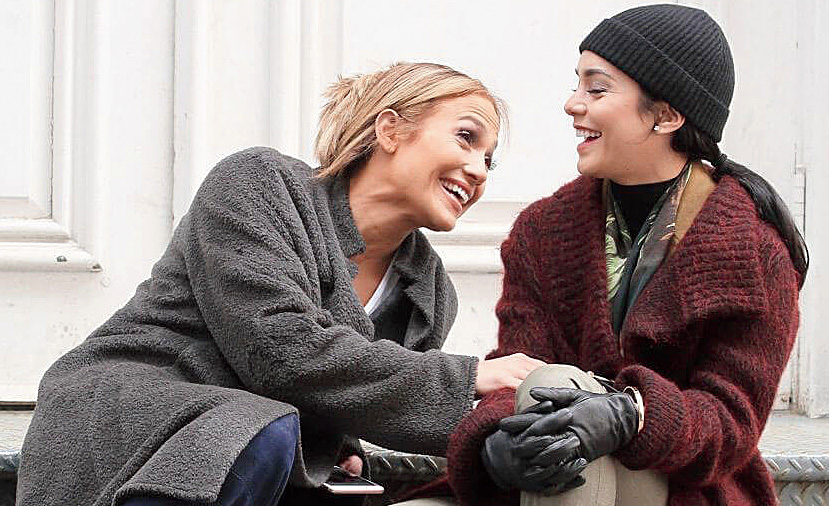Second Act is a workplace comedy with Jennifer Lopez as Maya, a brand-new 40-year-old who gets passed over for a promotion at the Queens superstore she manages. The white guy (Dan Bucatinsky) who gets the job is a stooge with a Duke MBA. She has a GED. Fortunately, her best work friend (Leah Remini) has a whiz-kid son who sends out a doctored resume and cooks up a phony Facebook page that turns her into the mountain-climbing go-getter she swore she’d never be. But the bogusness wins her a corporate consulting gig competing to develop organic face gloop, anyway.
This is Jenny from the blah. The movie was written by Justin Zackham and Elaine Goldsmith-Thomas and directed by the Adam Sandler and spoof veteran Peter Segal. We’re supposed to find what they’ve done with this story suspenseful. Just who at this company of divas, nerds and snakes will be the first to smell a rat? (Vanessa Hudgens, Charlyne Yi, Freddie Stroma and Annaleigh Ashford, who pockets the movie with debutante snark, are on the payroll.) How long until the plot goes from having Maya disappoint her man (Milo Ventimiglia) by reminding him that she doesn’t want kids to our finding out why and then watching her secret cause her joy and insufficiently plumbed pangs of emotional torment. I never see plot twists coming, but this one made me feel like Nostradamus.
Second Act is enough like Working Girl, Mike Nichols’s corporate-ladder romantic comedy from 30 years ago, that you wish it was even more like it. Maya isn’t cunning, conniving and savvy the way Melanie Griffith got to be in that movie. She doesn’t have a plan. She doesn’t even really make a decision. Every significant development happens to Maya. It’s done for her or requires her reluctant participation, from the ruse at work to her great big secret, to the dance party that breaks out in Remini’s kitchen on Maya’s way to work.
This is to say that a movie like this plays to none of Lopez’s strengths — if your star is known for, among other things, dancing, why stick in a scene of her suppressing the urge to dance? But passivity rather than assertiveness has come to define Lopez in movies. It’s been 20 years since Out of Sight helped make her a star (and stuff like Money Train, Jack, Anaconda, Selena and U-Turn promised that she’d be one), and, despite some relentlessness on her part (dozens of movies, some hits, a couple of fiascos) nothing she’s done has threatened to dislodge from my heart the impossible blend of hard and soft, of playfulness, sensuality and wit, that she found in that film.
Part of the problem is that, in all that time, she hasn’t had a role that good. But she doesn’t need one that good. All she needs is a movie that gets her to exert even some of the same confidence and competence, instead of parts that ask her to suffer and dither and hide as the price for eventually being able to, say, slay a very bad husband or a worse lover. Basically, it’s been 20 years, and I’m still waiting to see her let all the way go, to be as natural, funny, sharp, overjoyed, surprising, and open as she can be in interviews, on Instagram, as a competition judge and as a recording artist. This impossible mix of glamour and realness keep her among the world’s most beloved famous people. But film acting seems to freeze all that up. Filmmakers — or maybe Lopez herself — won’t let her be her. All she does is work hard for these movies — deferring, apologising, peacekeeping. When are the movies going to start working for her?
(The New York Times News Service)












